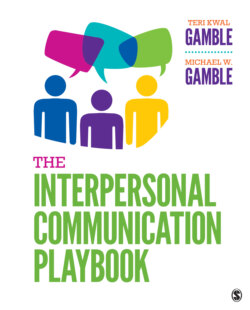Читать книгу The Interpersonal Communication Playbook - Teri Kwal Gamble - Страница 91
На сайте Литреса книга снята с продажи.
Consider these questions:
Оглавление1 To what extent, if any, do your experiences support Fulghum’s observations?
2 What factors do you believe cause us to change our answers to Fulghum’s questions as we mature?
3 Based on Fulghum’s insights, what advice would you give today’s kindergarten and college students?
Source: Robert Fulghum, Uh-Oh, New York: Villard Books, 1991, pp. 228–229.
People who are primarily individualistic in their thinking and behaving have an idiocentric orientation. Those who are primarily collectivistic in the way they think and behave have an allocentric orientation.36 To which group do you belong?
Do you think American culture is becoming more individualistic or more communal?
Comstock/Comstock/Thinkstock
Brand X Pictures/Brand X Pictures/Thinkstock
Our unique personal experiences and shared group membership influence how we define ourselves. Together with culture, these factors play integral parts in forming our self-concept. Still, care should always be taken against rigidly categorizing people from any given culture, whether individualistic or collectivistic in orientation. Keep in mind that variations occur within countries. For example, in the United States, people from the South exhibit higher levels of collectivism than do people living in the West.37 In addition, after people from the Western and Eastern worlds interact with each other, their cultural orientations moderate.
